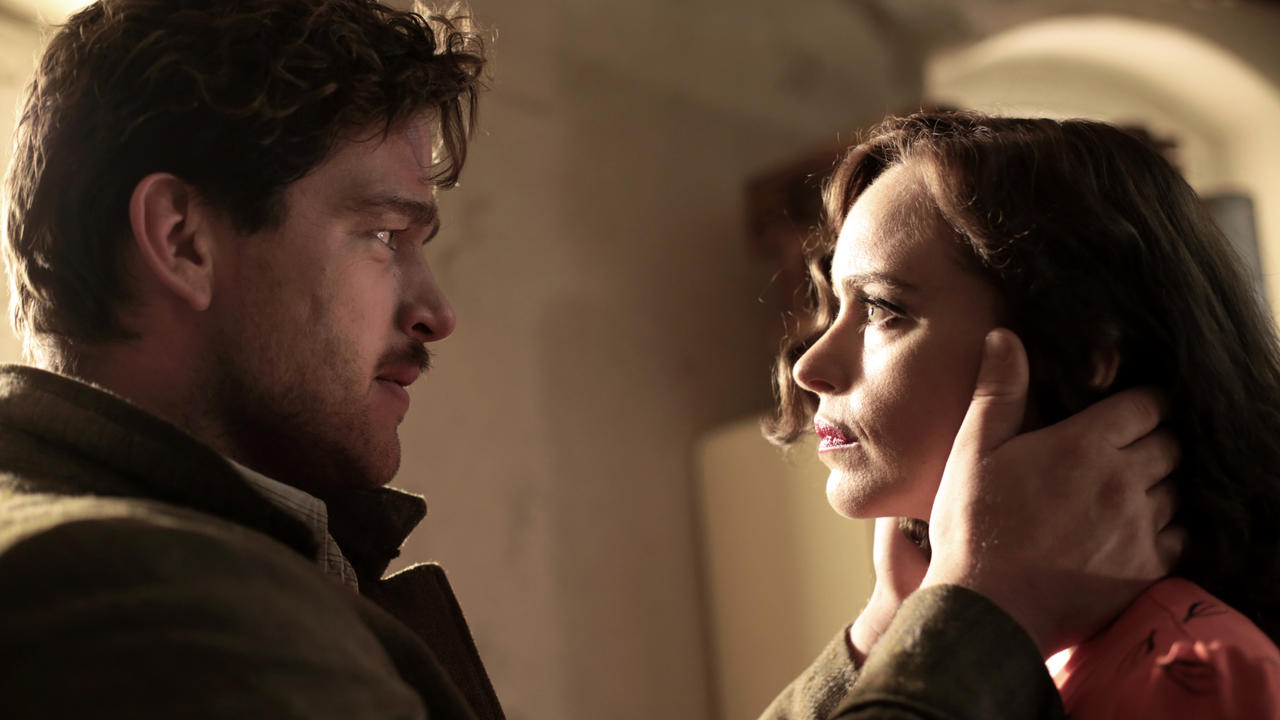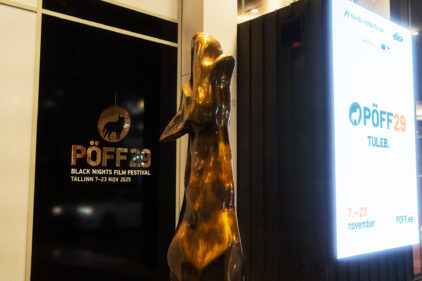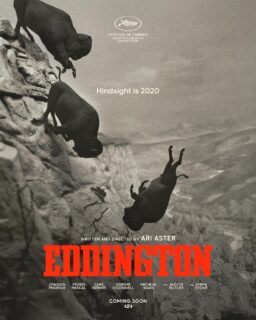Christian Petzold’s stunning “Phoenix” has been buzzed about
this year as the best film of the 2014 Toronto Film Festival. While more high
profile, mostly American (or British) works get the headlines, it’s often a
foreign film that gets critics talking, and this year’s arguable masterpiece is
the latest from the director of “Jerichow” and “Barbara,” a film that, in my
eyes, earns every bit of its TIFF adoration, and more. This is an amazing piece
of work that transcends historical document to become art. Using the filmic
language of noir, Petzold crafts a story of a culture caught in the aftermath
of horror. Moving through the rubble of Berlin just after the end of World War
II, the characters of “Phoenix” are ghosts, denying past betrayals and putting
up a façade to keep the pain repressed. They have done strong work together in
the past, but “Phoenix” is the kind of film that should propel Petzold and
regular star Nina Hoss to the forefront of international cinema. It’s
unforgettable.
Hoss plays Nelly Lenz, a woman who has escaped from a
concentration camp, but suffered severe facial injuries in the process. Her
whole face will have to be rebuilt, leaving a shadow of her old self, a version
of Nelly but not exactly the same one that existed before the war. Despite
protestations from the one woman who knows the truth about her, Nelly decides
to seek out her husband, Johnny (Ronald Zehrfeld, who also appeared in “Barbara”),
even though there’s evidence to suggest that it was he who turned Nelly into
the SS. Johnny was arrested on October 4th and released on October 6th,
the same day Nelly was arrested. He sold her out for his own safety.
When Nelly crosses paths with Johannes (don’t call him
Johnny any more), he notices the resemblance, but has completely convinced
himself that his wife must be dead. “She’s dead. I know she’s dead.” It’s a trick of denial, pushing such a
horrendous act to history instead of realizing that it may be still there in
the present. However, his wife has an unclaimed fortune, and Johannes convinces
Nelly to pretend to be who she actually is to claim it. He trains her to be
Nelly again, dressing her in the right clothes, working on her handwriting, and
coordinating “Nelly’s return” to civilization. She goes along with it,
frightened to reveal the truth, and hopeful that this will allow her some
semblance of the life she once she had, even as she refuses to believe that it
is her husband’s betrayal that destroyed her in the first place.
The plot of “Phoenix” is its first masterstroke: a brilliant
encapsulation of how people cope (or refuse to cope) with tragedy, especially
when it’s at least partially of their own making. Nelly is a ghost, a physical
representation of horror. Hoss does a complete 180 from the confident
characters she’s played in the past, portraying Nelly’s wide-eyed fear at
losing everything that she holds dear to her identity—her husband, her life,
her very face. Like so many people after World War II, she is a survivor who
doesn’t know how to move on from what she’s lost forever. It is Nelly and
Johnny’s denial that makes their relationship so riveting. He refuses to
realize this woman is the person he betrayed while she refuses to realize she
can never really go back again.
Petzold’s visualization of this emotionally daring story is
so finely tuned and executed that it can be taken for granted. Look at the art
direction in the rubble-strewn streets of Berlin. Watch the physicality of Johnny
and Nelly change as they work on their plan together in his shabby apartment.
The blocking, the tight quarters, the sense of espionage almost give the film
the air of noir. It feels like a Hitchcock work at times in its interplay of
shadow and light, which Petzold uses thematically as well. Nelly is slumped,
and regularly in shadows early in the film, and is seen more completely as her
character climbs out of its darkness.
Finally, and perhaps more importantly, Hoss is mesmerizing
here in every single beat. It’s a performance from which you can’t turn away.
Watch Nelly shrivel in the first-act suggestions that she get a new face or
simply move away from Berlin. If she’s not “Nelly Lenz of Berlin,” who is she?
Hoss sells the need we all have for identity, for place, for home, with palpable
intensity. And watch the way she slowly unfolds as Johnny transforms her,
becoming both more confident and more aware of the horror of her situation as
she rises like the titular creature of the film. The final scene, without
spoiling anything, is a movie moment for the ages. In a film festival of
five-to-six movie days, it’s hard sometimes to remember key moments. I will
never forget the end of “Phoenix.” Ever. Here’s hoping this incredible film
gets to an audience so it can sear itself into your memory as well.












